
Majunga: The Pearl of Madagascar's Northwest Coast
Majunga, also known as Mahajanga, is a vibrant city on the northwest coast of Madagascar. Known for its stunning sunsets over the Mozambique Channel, Majunga offers a blend of natural beauty and rich cultural heritage. The city's laid-back atmosphere is perfect for those looking to escape the hustle and bustle of more touristy destinations. One of the highlights of Majunga is its waterfront, lined with palm trees and bustling markets. The Avenue de la Liberté is a popular spot for a leisurely stroll, offering a glimpse into the daily lives of the locals. Don't miss the iconic Baobab tree, which stands as a symbol of the city. Nearby, the Cirque Rouge, a natural amphitheater of red sandstone, provides breathtaking views and is a favorite among photographers. Majunga is also a gateway to some of Madagascar's most captivating natural wonders. The Ankarafantsika National Park, located a short drive away, is home to diverse wildlife, including lemurs and rare bird species. For beach lovers, the nearby beaches of Grand Pavois and Antsanitia offer pristine sands and crystal-clear waters, perfect for swimming and relaxation. Culturally, Majunga is a melting pot of influences, with a history shaped by Arab, Indian, and French settlers. This is reflected in its cuisine, which features a delightful mix of flavors and spices. Be sure to try local dishes such as coconut curry and fresh seafood. The city's vibrant nightlife and festivals, such as the annual Sakalava Festival, provide a window into the local traditions and customs.
Local tips in Majunga
- Visit the iconic Baobab tree on Avenue de la Liberté for a perfect photo opportunity.
- Explore the Cirque Rouge at sunset for breathtaking views and vibrant colors.
- Take a day trip to Ankarafantsika National Park to see rare wildlife and lush landscapes.
- Try local seafood dishes and coconut curry at waterfront restaurants for an authentic culinary experience.
- Join in the festivities during the annual Sakalava Festival to experience local traditions and music.
Neighbourhoods in Majunga
Majunga: The Pearl of Madagascar's Northwest Coast
Majunga, also known as Mahajanga, is a vibrant city on the northwest coast of Madagascar. Known for its stunning sunsets over the Mozambique Channel, Majunga offers a blend of natural beauty and rich cultural heritage. The city's laid-back atmosphere is perfect for those looking to escape the hustle and bustle of more touristy destinations. One of the highlights of Majunga is its waterfront, lined with palm trees and bustling markets. The Avenue de la Liberté is a popular spot for a leisurely stroll, offering a glimpse into the daily lives of the locals. Don't miss the iconic Baobab tree, which stands as a symbol of the city. Nearby, the Cirque Rouge, a natural amphitheater of red sandstone, provides breathtaking views and is a favorite among photographers. Majunga is also a gateway to some of Madagascar's most captivating natural wonders. The Ankarafantsika National Park, located a short drive away, is home to diverse wildlife, including lemurs and rare bird species. For beach lovers, the nearby beaches of Grand Pavois and Antsanitia offer pristine sands and crystal-clear waters, perfect for swimming and relaxation. Culturally, Majunga is a melting pot of influences, with a history shaped by Arab, Indian, and French settlers. This is reflected in its cuisine, which features a delightful mix of flavors and spices. Be sure to try local dishes such as coconut curry and fresh seafood. The city's vibrant nightlife and festivals, such as the annual Sakalava Festival, provide a window into the local traditions and customs.
When is the best time to go to Majunga?
Iconic landmarks you can’t miss
Baobab Tree Hotel & Spa
Experience luxury and tranquility at Baobab Tree Hotel & Spa in Mahajanga, where relaxation meets adventure amidst stunning coastal beauty.
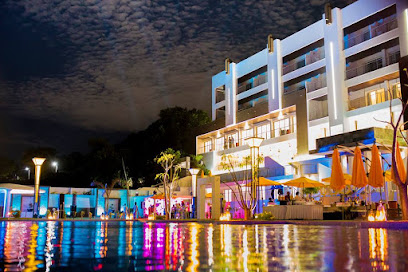
Le Baobab de Majunga
Explore the enchanting Le Baobab de Majunga, a majestic natural wonder showcasing Madagascar's iconic baobab trees and vibrant local culture.
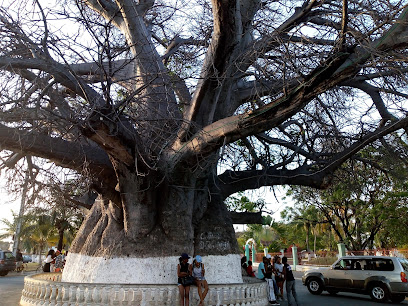
Hôtel Restaurant Gourmand Coco Lodge Majunga
Experience the beauty of Madagascar at Coco Lodge Majunga, where comfort meets local charm for an unforgettable stay.
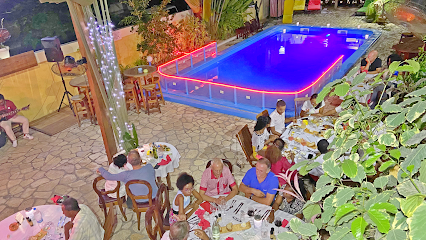
CIRQUE ROUGE
Experience the awe-inspiring beauty of Cirque Rouge, a stunning national reserve in Mahajanga, where vibrant landscapes meet rich cultural heritage.
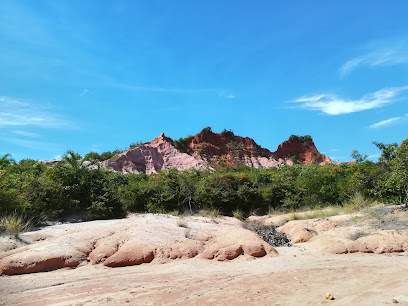
La Promenade - Majunga
Discover La Promenade in Majunga for a delightful culinary experience blending Malagasy flavors with international cuisine in a vibrant setting.
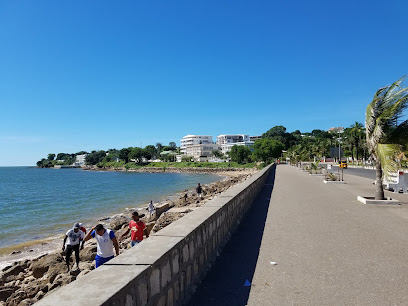
Village Touristique
Explore the vibrant culture and stunning landscapes of Village Touristique in Mahajanga, a must-visit destination for every traveler seeking adventure.
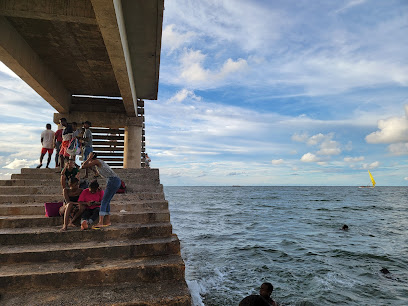
Amborovy Airport
Experience the charm of Amborovy Airport, the gateway to Mahajanga and the stunning landscapes of Madagascar, where adventure begins.
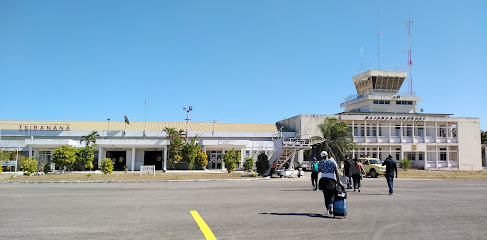
Petite Plage, Majunga
Experience the essence of Madagascar at Petite Plage, Majunga - where local flavors meet stunning ocean views in a tranquil setting.
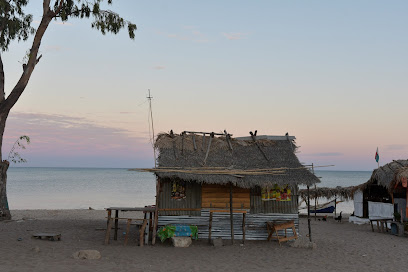
Lovencie Lodge
Discover the charm of Lovencie Lodge in Mahajanga, where comfort meets local culture in the heart of Madagascar's stunning coastline.

Fishing Résidence
Experience the tranquility and charm of Fishing Résidence, a serene hotel in Mahajanga, Madagascar, perfect for relaxation and exploration.
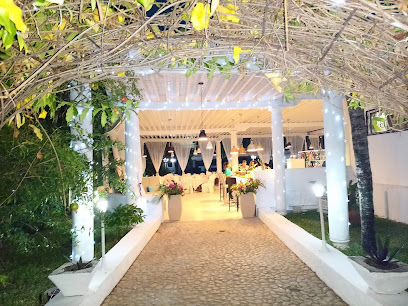
Phare de katsepy
Explore the breathtaking Phare de Katsepy lighthouse, a symbol of Madagascar's rich maritime heritage and stunning coastal beauty.
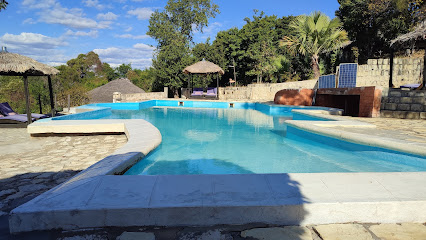
Grottes de Belobaka
Discover the breathtaking Grottes de Belobaka in Mahajanga, Madagascar – a natural marvel filled with stunning caves and rich biodiversity.
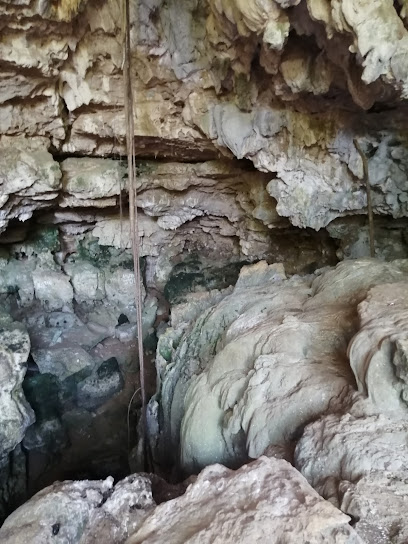
SeLoger Majunga
SeLoger Majunga: Your trusted real estate agency in Mahajanga, Madagascar, offering a range of properties for tourists and investors alike.
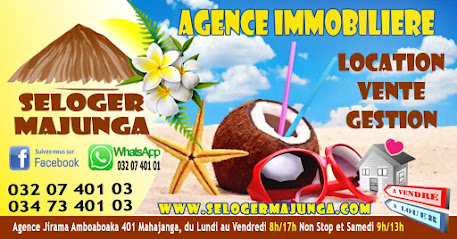
Majunga Antonov
Discover the rich cultural heritage at Majunga Antonov, a stunning monument in Mahajanga, Madagascar, that embodies local history and artistry.
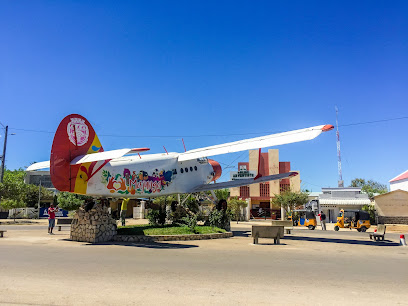
Unmissable attractions to see
Le Baobab de Majunga
Explore the enchanting Le Baobab de Majunga, a natural wonder showcasing Madagascar's iconic baobab trees amidst stunning landscapes.
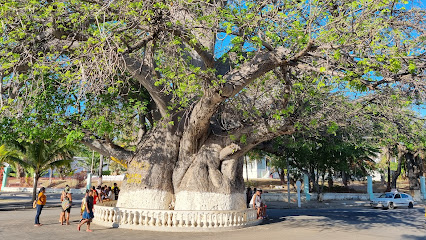
CIRQUE ROUGE
Discover the breathtaking beauty and unique biodiversity of Cirque Rouge, a national reserve in Madagascar's Mahajanga, perfect for nature lovers and adventurers.
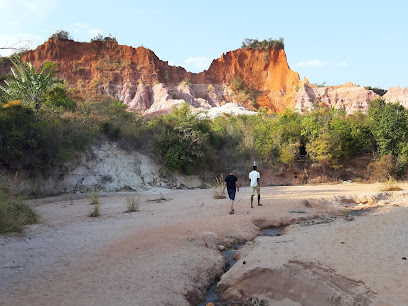
Village Touristique
Explore the enchanting Village Touristique in Mahajanga, Madagascar, where vibrant culture meets stunning natural beauty for an unforgettable adventure.
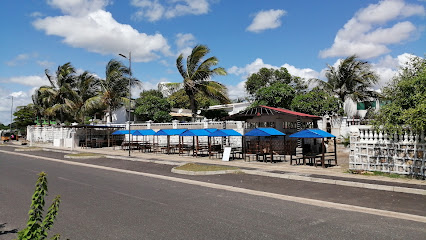
Ponton de mer
Discover the stunning panoramic views of the Indian Ocean and lush landscapes at Ponton de Mer in Mahajanga, Madagascar.
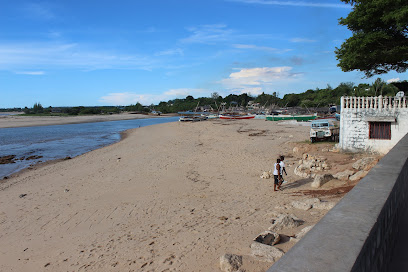
AQUALAND PARK MAHAJANGA
Discover endless fun at Aqualand Park Mahajanga, Madagascar's top water park featuring thrilling rides and relaxing pools for all ages.
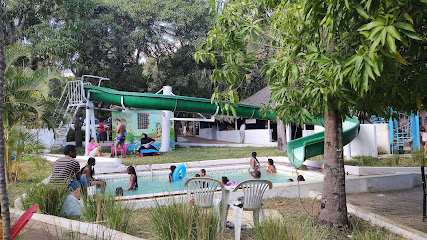
Bord de la mer
Discover the serene beauty of Bord de la Mer, a must-visit coastal attraction in Mahajanga, Madagascar, perfect for relaxation and cultural exploration.
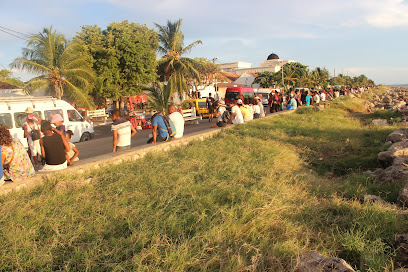
Phare de katsepy
Explore Phare de Katsepy – a stunning lighthouse in Madagascar offering breathtaking views and rich maritime history, perfect for every traveler.
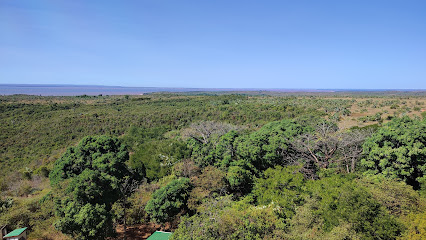
Grottes de Belobaka
Discover the breathtaking beauty of Grottes de Belobaka, a hidden cave system in Madagascar showcasing stunning rock formations and rich biodiversity.
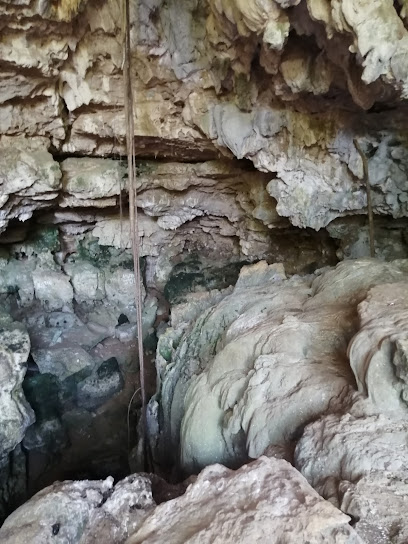
Municipal Santatra Garden
Explore the lush tranquility of Municipal Santatra Garden, a serene retreat in Mahajanga perfect for relaxation and nature appreciation.
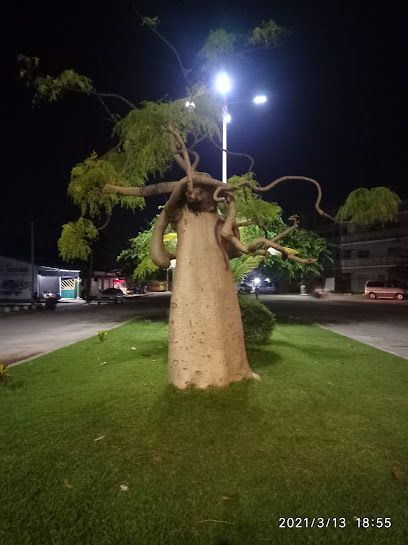
Boulevard
Uncover the vibrant culture and stunning coastal views at Boulevard in Mahajanga, Madagascar, a must-visit tourist attraction.
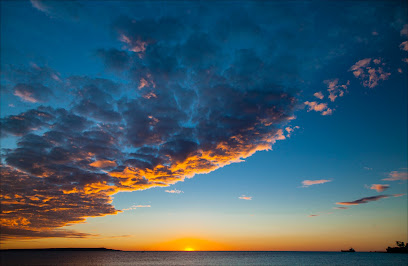
ParcNB@SIB Mahajanga
Explore the serene landscapes of ParcNB@SIB Mahajanga, a must-visit park in Mahajanga, Madagascar, perfect for relaxation and cultural immersion.
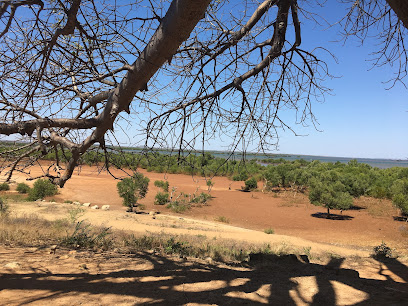
Avenue Philibert Tsiranana Garden
Avenue Philibert Tsiranana Garden offers a serene escape in Mahajanga, filled with lush greenery and vibrant flowers, perfect for relaxation and exploration.
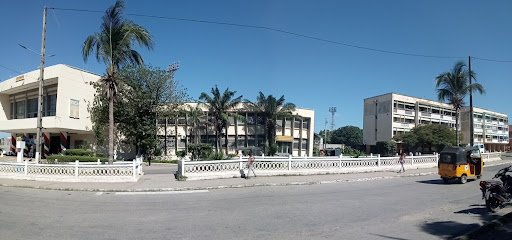
Surepipe Tree
Experience the breathtaking beauty of the Surepipe Tree in Mahajanga, a serene natural attraction showcasing Madagascar's unique flora and fauna.

Sainte Elise
Explore the stunning beauty and vibrant culture of Sainte Elise, a must-visit tourist attraction in Mahajanga, Madagascar.

Place de Mahajanga
Discover the vibrant heart of Mahajanga at Place de Mahajanga, a cultural hub filled with local crafts, cuisine, and lively entertainment.

Essential places to dine
Hôtel Restaurant Gourmand Coco Lodge Majunga
Discover culinary delights and warm hospitality at Hôtel Restaurant Gourmand Coco Lodge Majunga - your perfect getaway in Madagascar.
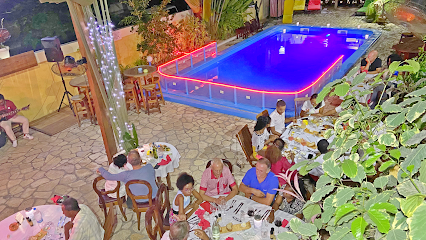
Le guest
Experience the best of Mahajanga's dining at Le Guest—delicious pizzas and refreshing drinks await you on Boulevard Marcos la Corniche.
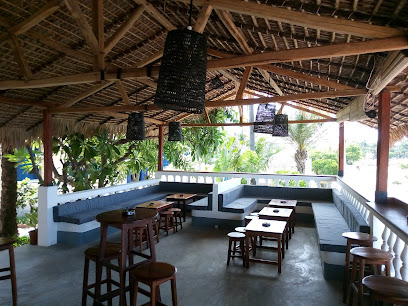
La petite cour
Experience the rich flavors of Madagascar at La Petite Cour in Mahajanga—where every dish tells a story.
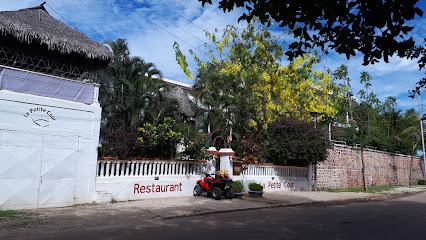
La Rotonde
Experience authentic Malagasy cuisine at La Rotonde in Mahajanga - a perfect blend of flavor and culture awaits you.
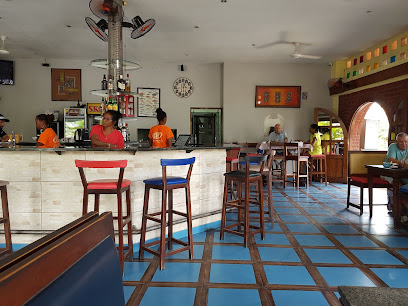
La Promenade - Majunga
Experience the vibrant flavors of Madagascar at La Promenade - Majunga's premier dining destination with stunning coastal views.
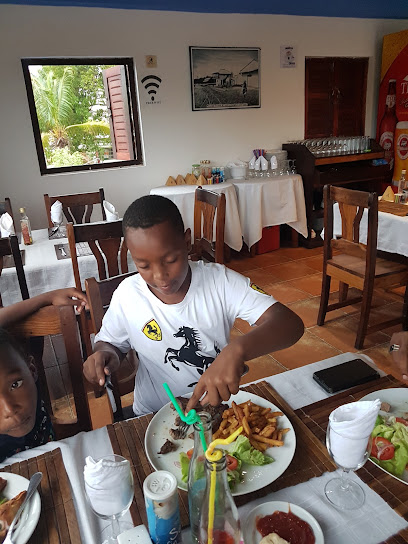
Restaurant Karibo Mahoraise
Experience the essence of Madagascar's cuisine at Restaurant Karibo Mahoraise - where every dish tells a story.
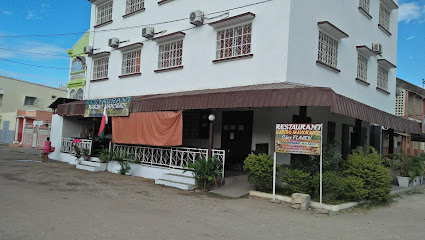
Petite Plage, Majunga
Experience authentic Malagasy cuisine with stunning ocean views at Petite Plage in Majunga.
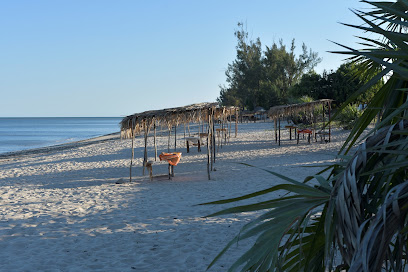
AQUARhum
Discover AQUARhum in Mahajanga – where authentic Italian pizzas meet local Malagasy flavors in a cozy atmosphere.
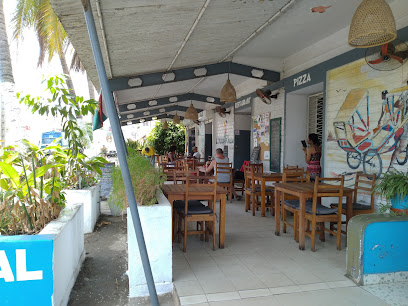
Retaurant papy raleur
Experience authentic French cuisine in Mahajanga at Restaurant Papy Raleur - where every dish tells a story.
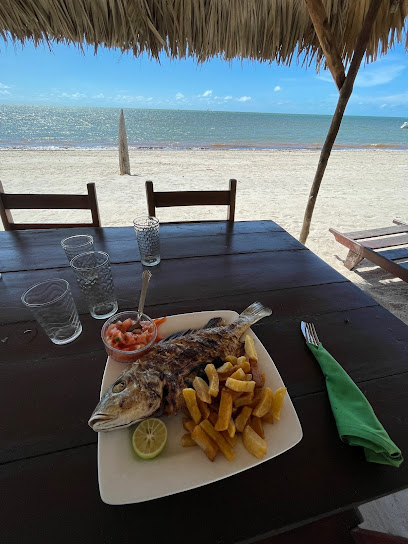
Parad'Ice Restaurant
Experience authentic Malagasy flavors at Parad'Ice Restaurant in Mahajanga - where every dish tells a story of Madagascar's rich culinary heritage.
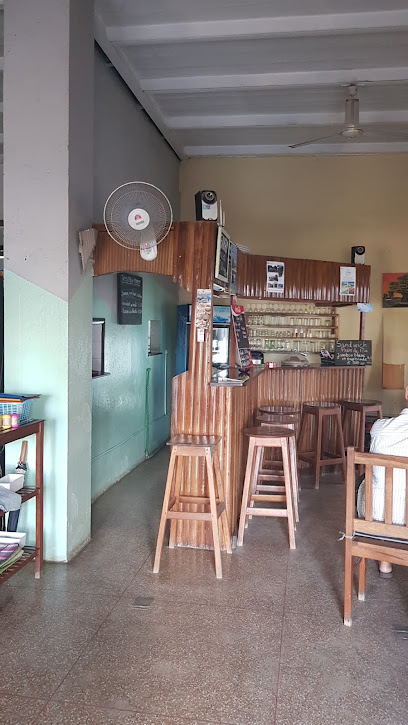
Bolo - Italian Restaurant & Gelato
Experience the best of Italian cuisine and delectable gelato at Bolo - your culinary haven in Mahajanga.
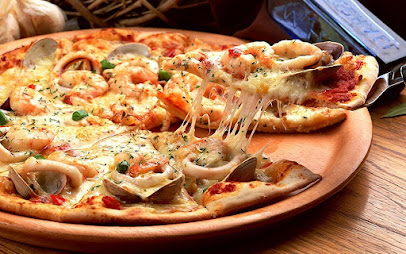
L'Annexe
Experience exquisite French cuisine at L'Annexe in Mahajanga - where culinary tradition meets local charm.
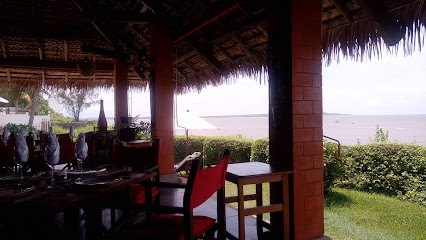
Coco loko
Discover Coco Loko in Mahajanga: where local flavors meet fast food delight for an unforgettable dining experience.
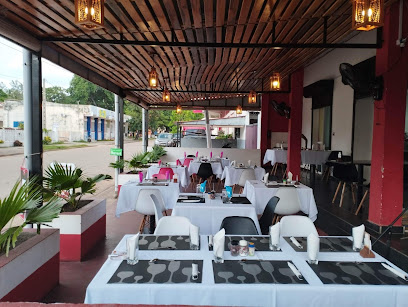
Restaurant Gourmand Coco Lodge Majunga
Experience authentic Malagasy cuisine at Restaurant Gourmand Coco Lodge in Mahajanga with stunning views and warm hospitality.
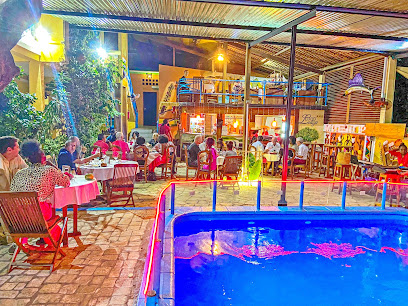
CHALET BLEU BAR
Experience authentic Malagasy barbecue at Chalet Bleu Bar – where flavor meets hospitality in Mahajanga.
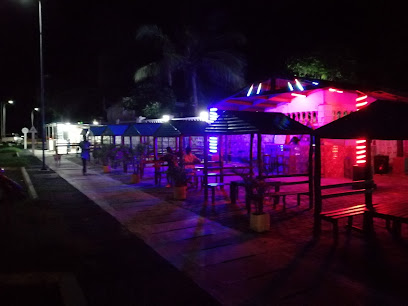
Markets, malls and hidden boutiques
Shoprite Majunga
Discover the vibrant shopping experience at Shoprite Majunga, your essential stop for local groceries, delicious baked goods, and fresh meats in Mahajanga.
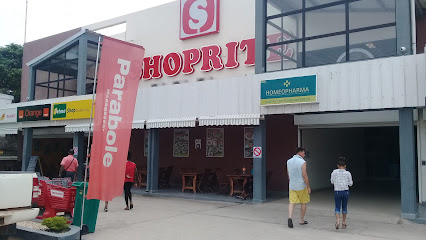
Bijouterie Rêve d'Or
Explore the stunning jewelry collection at Bijouterie Rêve d'Or in Mahajanga, where local craftsmanship meets exquisite design.
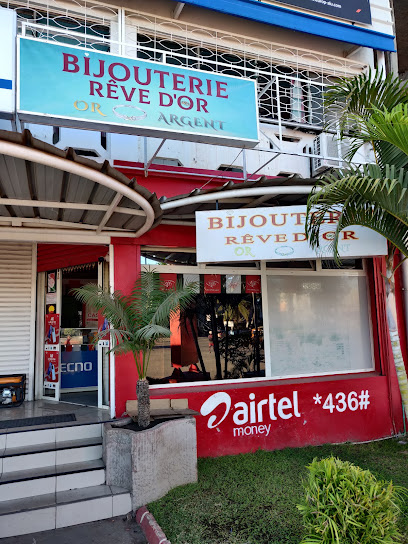
bijouterie BALARA à Majunga
Discover Madagascar's rich jewelry heritage at Bijouterie BALARA in Majunga, where craftsmanship meets elegance in every exquisite piece.
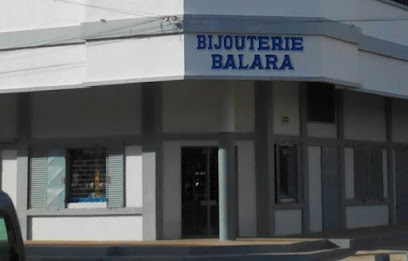
Mahabibo Bijoux Kati
Discover the artistry of Madagascar at Mahabibo Bijoux Kati, where exquisite jewelry embodies the island's vibrant culture and craftsmanship.
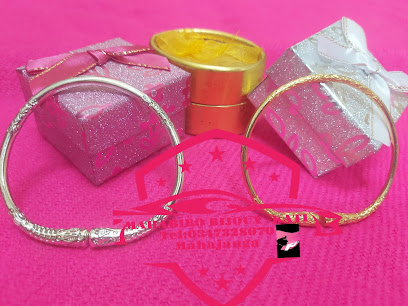
MAKI AMBOVOALANANA
Experience the allure of Mahajanga at MAKI AMBOVOALANANA, where local craftsmanship meets modern style in a unique boutique setting.
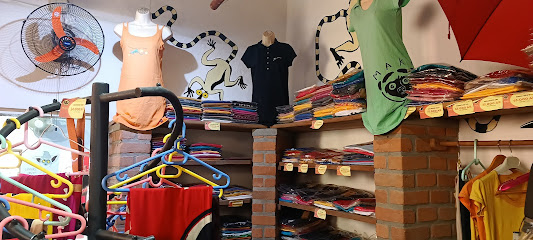
Chez Gaëlle
Explore the cultural essence of Mahajanga at Chez Gaëlle, a charming general store offering local goods and a unique shopping experience.

Ravazo Shop in Majunga
Explore Ravazo Shop in Majunga for an authentic shopping experience featuring local clothing and accessories that celebrate Madagascar's vibrant culture.
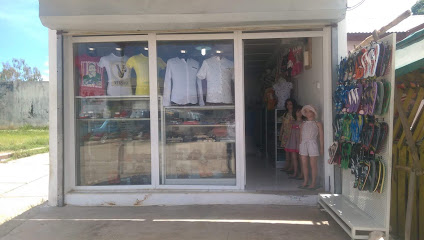
MIALY BOUTIQUE
Discover unique Malagasy handicrafts and souvenirs at Mialy Boutique in Mahajanga, where culture and craftsmanship come together.
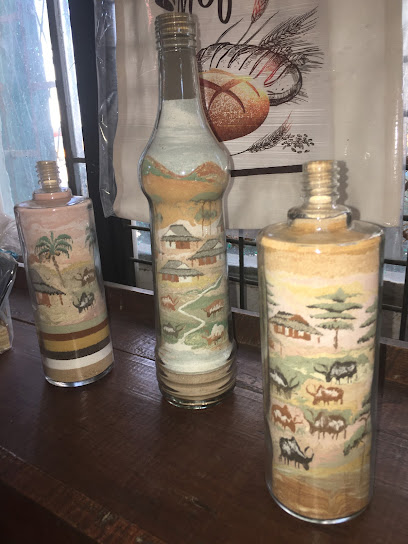
KALIDAS RIANNA BIJOUX
Explore the exquisite craftsmanship at Kalidas Rianna Bijoux, Mahajanga's premier jewelry destination showcasing unique handcrafted pieces.
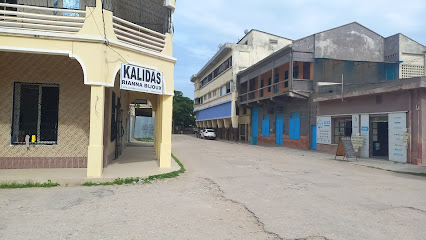
Chez Maman’Abela
Explore the vibrant fashion culture of Madagascar at Chez Maman’Abela, a unique clothing store in Mahajanga, blending local artistry with contemporary style.

Bazary Mahabibo
Explore the vibrant offerings at Bazary Mahabibo, a variety store in Mahajanga, Madagascar, showcasing local crafts and unique souvenirs.
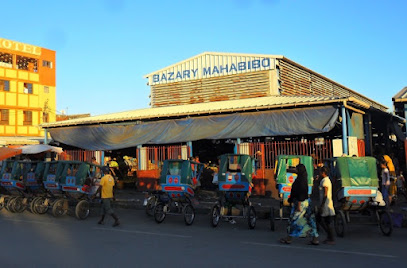
Housseni Store, « le coin des épices et des saveurs »
Experience the rich culinary heritage of Madagascar at Housseni Store, your destination for spices and local flavors in Mahajanga.
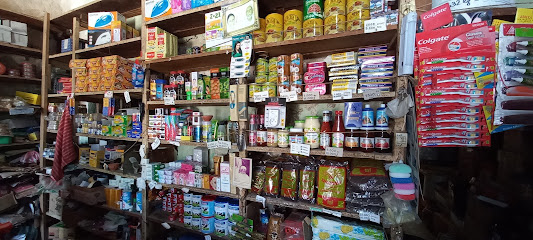
Aigle d'or
Discover the best in footwear at Aigle d'or, a beloved shoe store in Mahajanga offering stylish and comfortable options for every occasion.

FARMSHOP Mahajanga
Discover the essence of Madagascar's agriculture at FARMSHOP Mahajanga, where quality animal feed meets local culture.
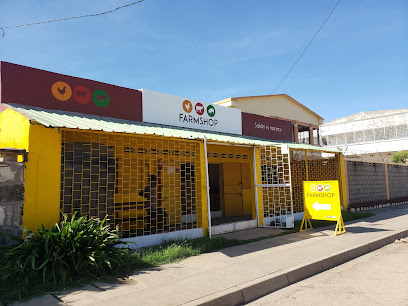
Boutique Canal plus
Discover a vibrant shopping experience at Boutique Canal Plus in Mahajanga, featuring local crafts and unique goods amidst a lively atmosphere.
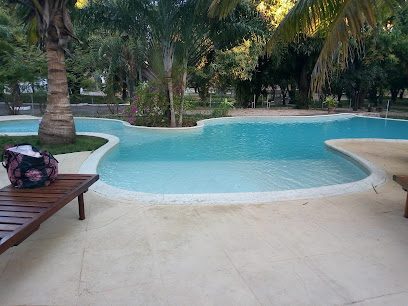
Essential bars & hidden hideouts
LE ZANZIBAR
Discover the vibrant atmosphere and local flavors at Le Zanzibar, a must-visit bar in Mahajanga, Madagascar offering refreshing drinks and lively entertainment.
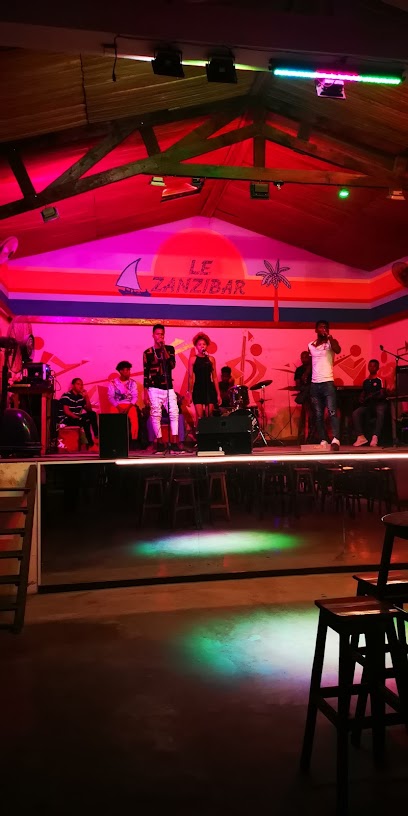
AMIN-TSIKA BAR Le chez nous
Discover the vibrant nightlife of Mahajanga at AMIN-TSIKA BAR Le chez nous, where refreshing drinks and a lively atmosphere await.
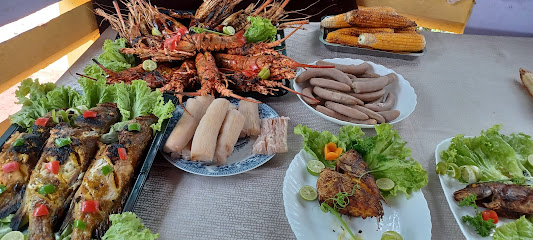
Le Bon Alibi
Experience the vibrant nightlife of Mahajanga at Le Bon Alibi, where locals and tourists mingle over crafted cocktails and delicious snacks.
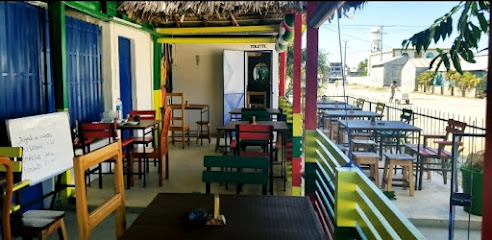
ÉPI-BAR AINA
Experience the vibrant spirit of Mahajanga at ÉPI-BAR AINA, where local flavors meet a welcoming atmosphere in a lively bar setting.

Blues Rock Café
Experience the vibrant nightlife of Mahajanga at Blues Rock Café, where live music and delicious cocktails create unforgettable evenings.
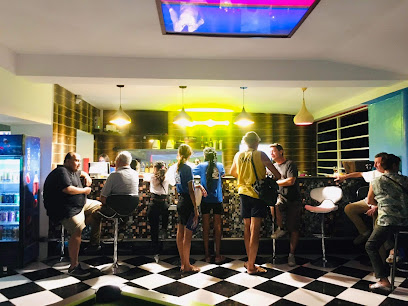
Lounge Bar 401
Discover the lively Lounge Bar 401 in Mahajanga, a must-visit destination for tourists seeking vibrant nightlife and refreshing drinks.
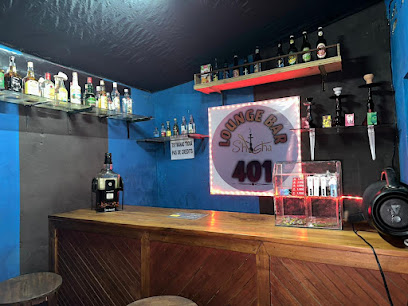
BAR LE CAPITAL
Discover the vibrant atmosphere of BAR LE CAPITAL in Mahajanga, where local culture and refreshing drinks come together for an unforgettable experience.

Plaque Hôtel Les Oliviers Majunga
Discover the lively vibes and local flavors at Hôtel Les Oliviers Majunga, a must-visit pub in the heart of Mahajanga.

Epi-bar Kintana A.Centauri
Discover the captivating cosmic-themed atmosphere of Epi-bar Kintana A.Centauri, the perfect spot for cocktails and relaxation in Mahajanga, Madagascar.
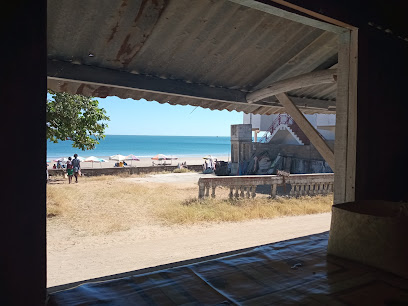
BAR CARREAUX AMBALAVOLA MAJUNGA
Discover the lively spirit of Mahajanga at Bar Carreaux Ambalavola, where local culture meets vibrant nightlife in an unforgettable atmosphere.
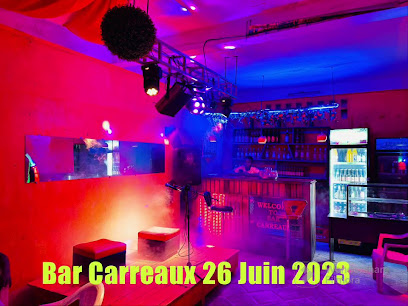
KGB
Discover the vibrant nightlife at KGB in Mahajanga, Madagascar, where delicious drinks and a lively atmosphere await every visitor.
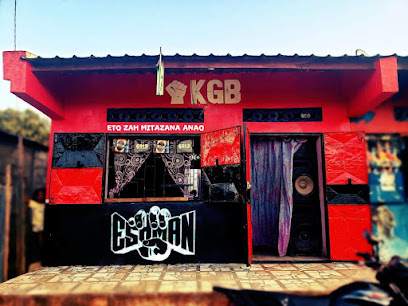
Bar Mangabe Antanimasaja
Experience the vibrant nightlife of Mahajanga at Bar Mangabe, where local culture and refreshing drinks come together for an unforgettable evening.

Bar Tsararivotra 2
Experience the vibrant nightlife of Mahajanga at Bar Tsararivotra 2, the ultimate karaoke destination for music lovers and fun seekers.
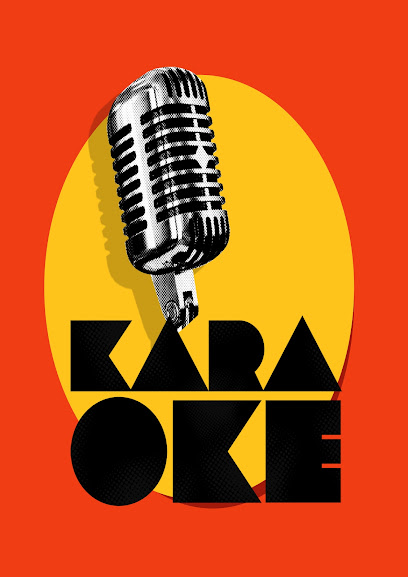
Bar paloma
Discover the vibrant nightlife of Mahajanga at Bar Paloma, where refreshing drinks and a lively atmosphere await every visitor.

KINESSA
Experience the vibrant nightlife of Mahajanga at KINESSA, a bar that offers a unique blend of local flavors and lively entertainment.

Local Phrases
-
- HelloSalama
[sah-lah-mah] - GoodbyeVeloma
[veh-loh-mah] - YesEny
[eh-ny] - NoTsia
[tsi-ah] - Please/You're welcomeAzafady
[ah-zah-fah-dy] - Thank youMisaotra
[mee-sah-oh-trah] - Excuse me/SorryAzafady
[ah-zah-fah-dy] - How are you?Inona ny vaovao?
[ee-noh-nah nee vah-oh-vah-oh] - Fine. And you?Tsara. Ary ianao?
[tsah-rah. ah-ree ee-ah-now] - Do you speak English?Miteny Anglisy ve ianao?
[mee-teh-ny ahng-lee-see vay ee-ah-now] - I don't understandTsy nifankahalala
[tsee nee-fahn-kah-hah-lah-lah]
- HelloSalama
-
- I'd like to see the menu, pleaseTe-hah-tsorana ny menio, azafady
[teh-hah-tsoh-rah-nah nee meh-nee-oh, ah-zah-fah-dy] - I don't eat meatTsy mihinam-bary aho
[tsee mee-hee-nahm-bah-ree ah-hoo] - Cheers!Mazotoa!
[mah-zoh-toh-ah] - I would like to pay, pleaseTe-hah-hanao fahana, azafady
[teh-hah-ah-nah-oh fah-hah-nah, ah-zah-fah-dy]
- I'd like to see the menu, pleaseTe-hah-tsorana ny menio, azafady
-
- Help!Fanantenana!
[fah-nahn-teh-nah-nah] - Go away!Mandehana!
[mah-n-deh-hah-nah] - Call the Police!Miverina ny polisy!
[mee-veh-ree-nah nee poh-lee-see] - Call a doctor!Miverina mpivarotra!
[mee-veh-ree-nahm pee-vah-roh-trah] - I'm lostVoatery aho
[voh-ah-teh-ree ah-hoo] - I'm illManahy aho
[mah-nah-hee ah-hoo]
- Help!Fanantenana!
-
- I'd like to buy...Te-hah-hahafantatra...
[teh-hah-hah-fahn-tah-trah] - I'm just lookingMitady ihany aho
[mee-tah-dy ee-hahn-y ah-hoo] - How much is it?Ohatra no vidiny?
[oh-hah-trah noh vee-dee-ny] - That's too expensiveMahatsiaro be ny vidiny
[mah-ha-tsyah-roh beh nee vee-dee-ny] - Can you lower the price?Afaka mangala ny vidiny ve ianao?
[ah-fah-kah mahn-gah-lah nee vee-dee-ny vay ee-ah-now]
- I'd like to buy...Te-hah-hahafantatra...
-
- What time is it?Inona no ora?
[ee-noh-nah noh oh-rah] - It's one o'clockEnina no ora
[eh-nee-nah noh oh-rah] - Half past (10)Efapolo sy folo
[eh-fah-poh-loh see foh-loh] - MorningMaraina
[mah-rah-ee-nah] - AfternoonAlina
[ah-lee-nah] - EveningHariva
[hah-ree-vah] - YesterdayOmaly
[oh-mah-ly] - TodayAnio
[ah-nee-oh] - TomorrowRahampitso
[rah-hahm-pee-tsoh] - 1Iray
[ee-ray] - 2Roa
[roh-ah] - 3Telo
[teh-loh] - 4Efatra
[eh-fah-trah] - 5Dimy
[dee-mee] - 6Enina
[eh-nee-nah] - 7Fitu
[fee-too] - 8Valo
[vah-loh] - 9Sivy
[see-vee] - 10Folo
[foh-loh]
- What time is it?Inona no ora?
-
- Where's a/the...?Aiza ny...
[ah-ee-zah nee] - What's the address?Inona ny adiresy?
[ee-noh-nah nee ah-dee-reh-see] - Can you show me (on the map)?Afaka manampy aho (amin'ny saritany)?
[ah-fah-kah mahn-ahm-pee ah-hoo ah-meen-ny sah-ree-tah-ny] - When's the next (bus)?Aiza ny farany (bus)?
[ah-ee-zah nee fah-rah-ny (boos)] - A ticket (to ....)Tiketa (ho ...)
[tee-keh-tah (hoo)]
- Where's a/the...?Aiza ny...
History of Majunga
-
Majunga, also known as Mahajanga, is one of Madagascar's oldest cities, founded in the 18th century. It was established by Arab traders who recognized the strategic value of its natural harbor. The city's name, derived from the Arabic word 'Majunga' meaning 'beautiful', reflects the admiration these traders had for the area.
-
During the 19th century, Majunga flourished as a bustling trade hub. The city's port became a crucial point of exchange for goods such as spices, textiles, and precious stones. Merchants from the Middle East, Africa, and Asia converged here, making it a melting pot of cultures and languages.
-
In 1895, Majunga fell under French colonial rule, transforming the city's infrastructure and economy. The French built roads, schools, and administrative buildings, many of which still stand today. This period also saw the introduction of new agricultural techniques and crops, significantly impacting the local way of life.
-
The Battle of Majunga took place in 1942 during World War II, when Allied forces launched Operation Ironclad to take control of the Vichy French-held Madagascar. The successful capture of Majunga's port allowed the Allies to secure crucial supply routes in the Indian Ocean, marking a significant moment in the city's military history.
-
Following Madagascar's independence in 1960, Majunga experienced significant growth and modernization. The city expanded its infrastructure, developing new residential areas and modern amenities. This period also saw a resurgence of Malagasy culture, with traditional festivals and practices being celebrated more openly.
-
Majunga is renowned for its cultural diversity, a legacy of its rich history as a trade hub. The city is home to various ethnic groups, including the Sakalava, Antakarana, and Comorian communities. This diversity is reflected in the city's vibrant cultural festivals, traditional music, and culinary traditions, making it a unique destination for travelers.
Majunga Essentials
-
Majunga, also known as Mahajanga, is accessible via several modes of transportation. The primary gateway is the Amborovy Airport (MJN), which is located around 10 kilometers from the city center. There are regular domestic flights from Antananarivo, the capital of Madagascar. Alternatively, you can take a long-distance bus from Antananarivo, though the journey can be lengthy, typically taking around 10 to 12 hours. For those who prefer traveling by sea, there are occasional ferry services from other coastal cities, but schedules can be irregular.
-
Within Majunga, transportation options include taxis, tuk-tuks (known locally as 'bajajs'), and public buses. Taxis are the most convenient but can be more expensive. Tuk-tuks offer a more economical option for short distances. Public buses, though very affordable, can be crowded and less reliable. For exploring the surrounding areas, renting a car is a viable option, though it's advisable to have a local driver due to the road conditions and local driving habits.
-
The official currency in Madagascar is the Malagasy Ariary (MGA). Credit cards are accepted in some hotels, restaurants, and larger shops, but it is advisable to carry cash, especially when visiting local markets or smaller establishments. ATMs are available in Majunga, but it's wise to withdraw sufficient cash in Antananarivo if you're traveling from there, as ATM availability can be sporadic.
-
Majunga is generally safe for tourists, but it's important to take standard precautions. Avoid walking alone at night in unfamiliar areas, particularly in the neighborhoods of Tsararano and Mahabibo, which have higher crime rates targeting tourists. Keep an eye on your belongings in crowded places, and be cautious when using ATMs. It's also advisable to use reputable taxi services, especially after dark.
-
In case of emergency, dial 117 for police assistance and 124 for medical emergencies. The main hospital in Majunga is the Centre Hospitalier Universitaire de Mahajanga, which provides emergency medical services. It's recommended to have travel insurance that covers medical emergencies and to carry a basic first-aid kit. Pharmacies are available for minor health issues and over-the-counter medications.
-
Fashion: Do dress modestly, especially when visiting religious sites. Avoid wearing revealing clothing. Religion: Do respect local customs and traditions. Remove your shoes when entering places of worship. Public Transport: Do be patient, as public transport can be crowded and schedules may not always be reliable. Don't eat or drink on public transport. Greetings: Do greet people with a handshake, and use 'Salama' for hello. A slight bow of the head is also a sign of respect. Eating & Drinking: Do try local dishes such as 'Ravitoto' and 'Koba'. Don't refuse hospitality, as it is considered impolite.
-
To experience Majunga like a local, visit the Bazary Be Market, where you can buy fresh produce and traditional Malagasy goods. Engage with locals, as they are often friendly and willing to share stories about the city's history and culture. Don't miss a stroll along the Corniche, especially at sunset, to enjoy a picturesque view of the Mozambique Channel. For a unique experience, take a boat trip to the nearby Anjohibe Caves, known for their impressive stalactites and underground lakes.
Trending Landmark in Majunga
Nearby Cities to Majunga
-
Things To Do in Mahajanga
-
Things To Do in Chirongui
-
Things To Do in Bandrele
-
Things To Do in Nosy Be
-
Things To Do in Dembeni
-
Things To Do in Sada
-
Things To Do in Chiconi
-
Things To Do in Mamoudzou
-
Things To Do in Koungou
-
Things To Do in Acoua
-
Things To Do in Antananarivo
-
Things To Do in Andasibe
-
Things To Do in Toamasina
-
Things To Do in Domoni
-
Things To Do in Ouani











